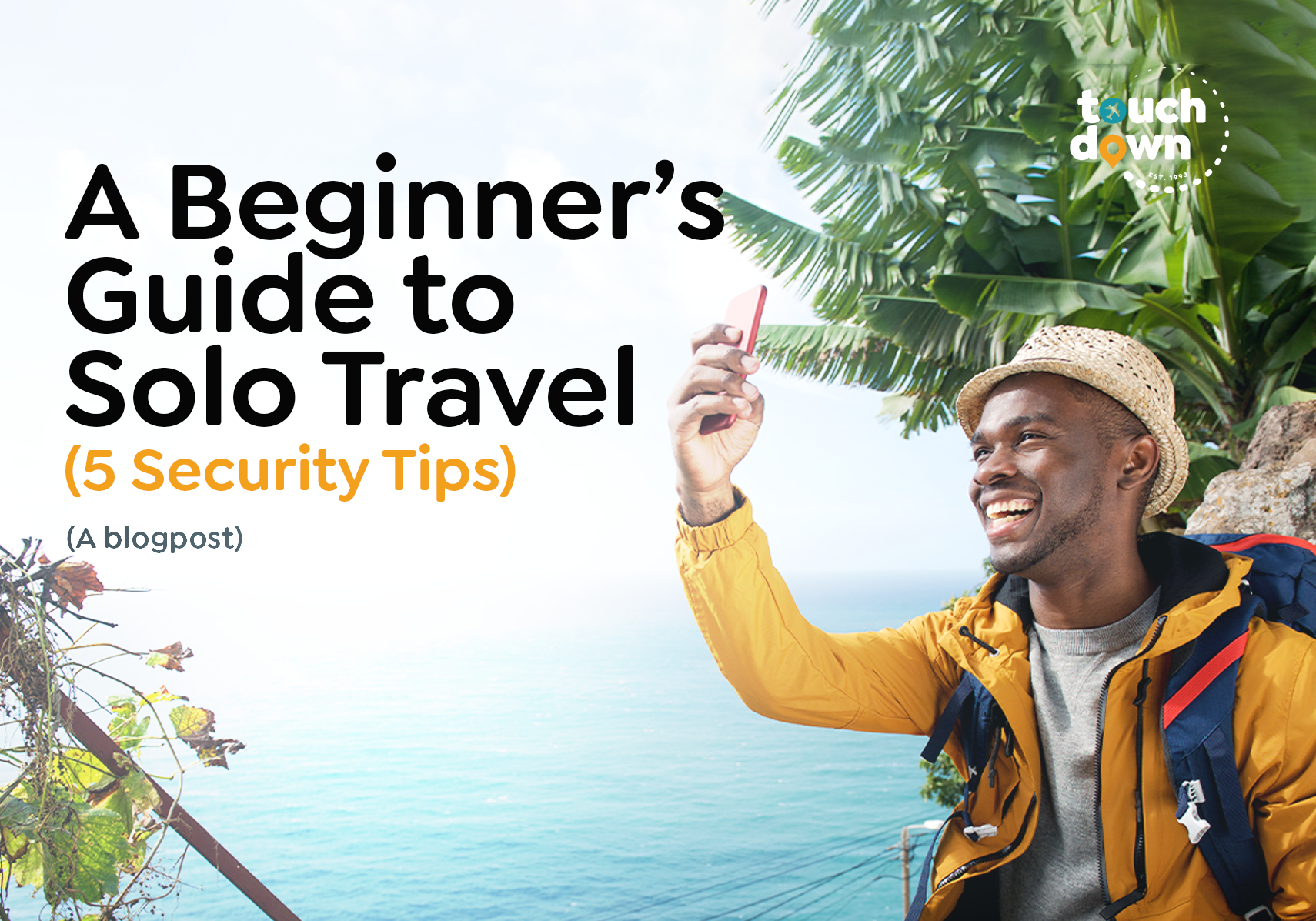Solo travel can be an incredibly rewarding and liberating experience, offering the opportunity for you to discover yourself, and experience adventure, and personal growth.
However, it’s essential to prioritize safety and security when travelling alone, especially in unfamiliar environments.
This is one of the reasons why you probably found this article, and trust me you’re in the right place.
In this article, I will be sharing with you the basics of solo travel as well as security tips to help you navigate your journey with confidence, and peace of mind and get you home safely.
What is solo travel?
Solo travel refers to the act of travelling alone without companions or travel partners.
It entails exploring destinations, engaging in activities, and navigating various aspects of the travel experience independently.
Travellers who explore solo travel plan and execute their trips solo, from itinerary planning and accommodation booking to transportation arrangements and sightseeing activities.
Here’s the sweetest part, solo travel can take many forms, from short weekend getaways to extended trips spanning weeks or months to international countries.
It also offers individuals the freedom to pursue their interests, follow their own schedules, and immerse themselves fully in the travel experience without the need to compromise or accommodate the preferences of others.
If you looking for a “me” experience, solo travel is what you need.
Why is solo travel important?
1. It provides opportunities for self-reflection and introspection.
2. It allows you to step out of your comfort zone, confront challenges, and discover new aspects of yourself as you navigate unfamiliar environments and situations.
3. Solo travel fosters independence and self-reliance as you take full responsibility for planning, decision-making, and problem-solving during your journey.
4. It provides room for deeper cultural immersion and authentic interactions with locals.
Without the presence of travel companions, you may be more inclined to engage with the locals, learn about their customs, traditions, and way of life, and gain a deeper understanding of different cultures.
5. Solo travel presents you with various challenges and obstacles that require creative problem-solving and adaptability.
From navigating public transportation, and overcoming language barriers, to finding accommodation on short notice, solo travellers develop resourcefulness and resilience in addressing unexpected situations.
Security Tips For Solo Travel
1. Get sufficient information about your destination
Your first step in ensuring your safety on your solo trip is to know everything you need to know about where you are going. Why?
It reduces the chances of being at safety and security risk.
It is also necessary for you to familiarize yourself with the local customs, culture, and laws to avoid unintentional faux pas or legal issues.
Pay attention to travel advisories and safety alerts issued by reputable sources such as government websites or travel forums.
2. Stay connected with trusted friends and family
When you are planning to travel solo, be prepared to be in contact with your trusted friends and family members, if anything goes wrong, someone out there knows your location and itinerary.
Check-in regularly via text, phone call, or email to let them know you’re safe and provide updates on your whereabouts.
You should also consider using location-sharing apps or safety devices for added peace of mind, especially when exploring remote or unfamiliar areas.
3. Dress like a local
If you are schooled in Nigeria, you will remember what happens when we learn that a foreigner is in our class or when we see a white man on the streets of Lagos.
The same way we look at them with curiosity is the same way they will do when they see you in the city. However, if you’re able to blend in with their culture, you will be able to avoid drawing unnecessary attention to yourself.
At the same time, by adopting a low-profile approach, you can minimize the risk of becoming a target for theft or scams.
4. Stay Vigilant
It is important that you maintain a heightened sense of awareness of your environment, trust your instinct and avoid distractions such as excessive alcohol consumption or excessive use of electronic devices,
Remember that prevention is key, and taking proactive measures to avoid risky situations can help keep you safe during your travels.
5. Protect Your Valuables and Personal Information
For starters, protecting your belongings and personal information is paramount for solo travellers. As much as possible, you want to minimize putting yourself at risk and that involves:
- Carrying large sums of cash
- Sharing personal information with strangers, especially in public settings or online platforms
As an alternative, opt for secure payment methods such as credit cards or digital wallets and only pay with cash when that’s the only available option.
Keep important documents, such as your passport and travel insurance details, in a secure location and make digital copies as a backup.
You want to enjoy your solo travel and you also want to make sure you don’t end up stranded in a foreign country.
Conclusion
With a little research, planning, and these five essential security tips, you’re well on your way to having a safe and rewarding solo travel experience. Remember, the most important thing is to trust your gut, embrace the adventure, and create memories that will last a lifetime.
More Articles for you to read
10 Visa-Free Countries For A Nigerian Passport-Holder
Beginners Guide To Understanding Travel Insurance
